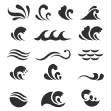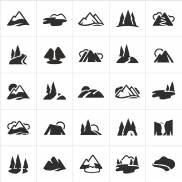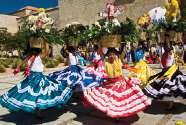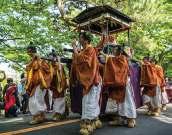WELCOME!
Look at the map again and choose the correct options. Then listen to the dialogue and check.

1 The skatepark is behind / in front of / next to the stadium.
2 The restaurant is behind / in front of / next to the skatepark.
3 The mall is between / behind / in front of the park.
4 The movie theater is next to / inside / between the mall.
5 The bowling alley is inside / between / behind the grocery store and the clothes store.
6 The grocery store is on the left of / inside / on the right of the bowling alley.
SUBJECT, OBJECT, AND POSSESSIVE PRONOUNS
LOOK!
Remember: never omit object pronouns.
Complete the sentences with the correct subject, object, or possessive pronoun.
1 His name is Mario.
2 I always want a drink after basketball, so my dad buys a soda.
3 Victoria’s mother called on the phone, but she didn’t answer.
4 Mark, this is not your pen. It’s . Look, here’s my name.
5 They have a new teacher. Mr. Suares teaches English now.
6 You and I are tired. need to rest.
7 I’m certain this is your bike. Yes, look, it’s definitely !
Extension
Put students into teams to play a miming game. Invite a student from each team to the front and give them a sentence to mime. Each sentence must contain a subject and an object pronoun, e.g.: She gave the ball to him. They helped her do the homework. If students need help miming pronouns, tell them they can point to themselves or one or more of their classmates to give clues. The first team to guess the complete sentence each time wins a point. Repeat with other students.
Excerpt
www.cambridge.org © in this web service Cambridge University Press & Assessment
More Information
IN TOWN AND
PLACE
0.01
repeat. 1 g rocery s tore 2 b a 3 c s 4 p 5 m 6 m t 7 r 8 s 9 s 1
PLACES
PREPOSITIONS OF
Look at the map and complete the words for places in town. Listen, check, and
3
0.02
2 1 2 3 4 5 6 8 9 7 4 owling lley ark katepark tadium lothes tore estaurant all ovie heater me her mine them We yours
Welcome! | Starter T4
Lesson Aim: I can talk about places in town using prepositions of place. I can use subject, object, and possessive pronouns in sentences.
Starter Welcome!
Starter Welcome!
0.03–0.04 Audioscripts








1 Focus on the example and then elicit question 2. Have students complete the exercise individually. After checking the questions, write these adverbs on the board and review them with the class: always, usually, often, sometimes, never. Then have a student ask you the questions, and give answers using the adverbs on the board, e.g.: I sometimes go to the mall on Saturday. I never play soccer. Put students into pairs to do the task. To round off the activity, ask different students to say a sentence about their partner, e.g.: Carlos often reads in bed.
Extension
Extend Exercise 1 into a Find someone who ... activity. Write some example sentences on the board, e.g.: Find someone who ... usually goes to the mall, sometimes plays soccer, etc. Have students write six sentences each, using the prompts from Exercise 1 and adverbs of frequency of their choice. Then have them walk around asking Yes/No questions, e.g.: Do you sometimes play soccer? Have them write the name of one person who says yes to each one.
2 0.03 Go through the words with students and check comprehension. Then elicit the food in each image before students write the words. After students do the exercise, you can ask: Do you prefer (chicken or fish)? How often do you have (pizza)? What’s your favorite (juice)?

Extension
Put students into groups. Have them write the letters A–Z down one side of a piece of paper. Give them five minutes to write food words that begin with any of the letters. When the time is up, see who has the most food words on their list. Then have groups switch papers to check each other’s answers.
3 0.04 Point to the images and elicit the words. After students do the exercise, you can ask: How do you come to school? Do you prefer using (the subway or the bus)? Why? What is your favorite form of transportation? Why?


Lesson Aim: I can say how often I do things. I can talk about food and transportation.

Extension
Play a guessing game. Draw one line of a picture for another form of transportation, (e.g., a bicycle) and ask students to guess what it is. If they can’t, draw another line, and so on until someone guesses the answer. Then have a volunteer come to the front and give them the name of another form of transportation for them to draw (one line at a time). The first student to guess draws the next picture. Possible items to draw: train, rocket, helicopter, balloon, and the items from Exercise 3.
Cambridge University Press & Assessment
Excerpt More Information www.cambridge.org © in this web service Cambridge University Press & Assessment Complete the sentences with the words below. Then listen, check, and repeat. • pineapple • rice FOOD ADVERBS OF FREQUENCY A D B E C F b d Make questions with how often to ask a partner. Use the prompts. 1 go to the mall How often do you go to the mall? 2 play soccer 3 read in bed 1 Brazilian people love to eat 1 rice and 2 I made a delicious drink from 5 and 6 Many Japanese people eat 3 and 4 in the same meal. I love the combination of 7 and 8 on a Hawaiian pizza. 0.04 Look and number the words. Then listen, check, and repeat. 3 1 motorcycle A 2 airplane 3 subway 4 bus 5 boat 6 car 4 take the bus 5 have lunch at home 6 listen to music 5 WELCOME Howoftendoyouplaysoccer? Howoftendoyouhavelunchathome? Howoftendoyoutakethebus? Howoftendoyoureadinbed?Howoftendoyoulistentomusic? beans fish pineapple carrotsorangejuice DDD F B E C chicken cheese
978-1-009-26780-9 Game Changer Level 2 Teacher's Book with Digital Pack Simon Cupit
pT138
T5 Starter | Welcome!
0.05 Audioscript pT138



















1 Review Yes/No question formation with Was/Were with the class. Write two examples on the board and draw students’ attention to the word order (i.e., Was/Were + subject). Then review short answers. Focus on the example. Then invite volunteers to write the rest of the questions on the board, one at a time. Ensure students use the correct punctuation.
Extension
Put students into pairs and have them ask and answer the questions in Exercise 1. Encourage them to ask for more details, e.g., for question 4: Where were you on Sunday? When pairs finish the task, they can report some of their answers to the class, e.g.: Marissa was in the park on Sunday.
2 Ask: How do we form the simple past of regular verbs? Elicit examples and write them on the board. Review spelling rules: we usually add –ed, but we add –d to verbs ending in –e, and replace –y with –ied in verbs ending in –y. Then elicit some irregular verbs. Focus on the text and elicit the past forms (affirmative and negative) of the verbs. Then have students complete the text individually. When they finish, ask individual students to read out a sentence each. Focus on pronunciation of the past forms.

Extension
Have students write a paragraph about a place they visited on vacation. Tell them to use the text in Exercise 2 as a model. They should write four or five sentences in the past tense. Then put students into pairs to switch and correct each other’s paragraphs. Finally, have students illustrate their texts and display them in the classroom.
SIMPLE PAST OF VERB TO BE

Put the words in the correct order to make questions.
1 your / good / weekend / was / ?
Was your weekend good?
2 your / was / school / yesterday / at / best friend / ? 3 cafeteria / this morning / the / were / they / in / ?

Wasyourbestfriendatschoolyesterday?

5 year / teachers / the same / last / your / were / ?
3 0.05 Have students say what they see in the images. Review the adjectives if necessary by having volunteers mime each one for the class. Draw students’ attention to the endings –ed and –ing. Elicit the difference in meaning and pairs of adjectives, e.g.: bored–boring, surprised–surprising, tired–tiring, excited–exciting. Students can compare answers in pairs before checking with the class. Finally, point to number 6 and explain that we can also use some of these adjectives to describe objects.
Extension
Put students into groups. Have them write the adjectives from Exercise 3 on a separate slip of paper each and put the slips in a pile face down in the center. Students take turns to pick up a word and draw it for their classmates to guess.
Cambridge University Press & Assessment 978-1-009-26780-9 Game Changer Level 2 Teacher's Book with Digital Pack Simon Cupit Excerpt More Information www.cambridge.org © in this web service Cambridge University Press & Assessment Complete the review with the correct simple past form of the verbs in parentheses. 2 SIMPLE PAST OF REGULAR AND IRREGULAR VERBS PERSONALITY ADJECTIVES AND FEELINGS Bersantai is a beautiful hotel and it 1 didn’t disappoint (not disappoint) me. I 2 (stay) there for two weeks in March. We 3 (eat) delicious food at the hotel restaurant. We 4 (not go) to the spa, but we 5 (relax) by the swimming pool. We 6 (walk) on the beach and we 7 (go) to the stores downtown. My brother 8 (take) cool photos at Mengiat Beach. I 9 (not sleep) well on the first day because it was very hot. But then the weather 10 (change) and it was perfect. 11 I (like) it? I 12 (love) it! We 13 (have) a great time there. 1 4 2 3 5 6 She’s really bored / boring / funny She’s really sad / excited / clever! She is surprised / angry / strong.He was very brave / friendly / tired Michael is so amazing / happy / lazy! This is a worried / kind / funny picture. 0.05 Circle the correct word to complete the sentences. Then listen, check, and repeat. 3 Great Location, Amazing Facilities
1 4
/ at /
and your family
on / were / Sunday / the beach / you / ?
6
onSunday? Wereyouandyourfamilyatthebeach Weretheyinthecafeteriathismorning? Wereyourteachersthesamelastyear? stayed ate relaxed didn’tsleep took walkedwent didn’tgo Did likelovedhad changed
Welcome! | Starter T6
Lesson Aim: I can talk about the past. I can talk about people’s personality and feelings.
Starter Welcome!
Cambridge University Press & Assessment


978-1-009-26780-9 Game Changer Level 2 Teacher's Book with Digital Pack
Simon Cupit Excerpt
More Information
Starter Welcome!
0.06–0.07 Audioscripts pT138


1 0.06 Focus on the images and elicit the words. Write the words on the board and then have students find them in the puzzle. When they finish, have students repeat the words chorally and individually, focusing on the different vowel sounds: field, bird, coast, flower, grass, hill, lake, sea, tree, village.
Extension
Ask students to draw a nature scene including the items from Exercise 1. Tell them to label the items. You may encourage them to add and label other items they know. Students can keep the scene in their vocabulary notebooks.
2 0.07 Ask: How do we form the past progressive? Elicit some examples (affirmative and negative) and write them on the board. Then elicit that we use the past progressive to talk about ongoing actions in the past. Draw attention to the example, then have students complete the exercise individually. To check answers, invite individual students to read out a sentence each.
3 Review Yes/No question formation for the past progressive. Write two examples on the board and draw students’ attention to the word order (i.e., Was/Were + subject + verb(–ing)). Then review short answers. Focus on the example. Tell students that the answer will help them decide which verb to use in the question. Students complete the exercise individually. Check answers with the class.
Extension
Tell students to write three affirmative sentences in the past progressive about what they were doing last night. Two sentences should be true and one false, e.g.: Last night … I was watching TV. I was wearing my favorite jeans. I was painting a picture. Then put students into groups. Have each student read out their three sentences for their classmates to guess the false one.
NATURE
0.06 Find ten nature words and label the images. Then listen, check, and repeat.






PAST
0.07 Complete the sentences. Use the correct forms of the verbs below. Then listen and check.
• look
• not wear
• show
• sit
• sleep
• watch
• wear
It was 10 o’clock last night. I 1 was watching some online videos. My parents
2 . I got a message from my friend Sara. She 3 for her school jacket, but she couldn’t find it. “I 4 my jacket at school today, right?” she asked me. “Yes, you were,” I answered. “But you took it off in the classroom.” She then asked, “I 5 next to Regina and Isabel, right?” “Yes, that’s right,” I replied. “At the end of the last class, you 6 them pictures on your cell phone and they 7 their jackets,” I answered. “Maybe one of them took your jacket by mistake.” Complete the questions with the correct past progressive form of the verbs below. Then match 1–5 with a–e.
• drive • live • shout • talk • watch
1 Were you watching TV last night? b
2 your mother to you?
3 we yesterday evening?
4 he to work at 9 a.m. today?
5 they in Spain in 2020?
a Yes, she was. She was telling me about her day.
b No, I wasn’t. I was studying for a test.
c No, we weren’t. We were just talking loudly.
d Yes, they were. They had an apartment in Madrid. e Yes, he was. He missed the bus this morning.
www.cambridge.org © in this web service Cambridge University Press & Assessment
1
2 3
PROGRESSIVE
FHILLNCG VIFLOWER IUEEBBLA LSALYBAS LECDDIKS AAJDAREA GTREEDVU ERCOASTI 7 WELCOME bird lake hill flower tree coast sea grass village
Were Was Were talking shouting driving living a c e d wereshowing waswearing waslooking
weresleeping wassi ing weren’twearing Was
Starter | Welcome! T7
Lesson Aim: I can talk about nature. I can talk about ongoing actions in the past.
Cambridge University Press & Assessment

978-1-009-26780-9 Game Changer Level 2 Teacher's Book with Digital Pack
Simon Cupit
Starter Welcome!
0.08–0.09 Audioscripts



1 0.08 Have students say what they see in the images. Ask: What is the weather like? Check answers with the class. Focus on pronunciation when students repeat the words, ensuring that they stress the first syllable each time, e.g.: cloudy, foggy. Then ask: What is the weather like today?





Extension
Play a Sentence Chain game. Have the class sit or stand in a circle. If you have a large class, have groups stand in smaller circles. Tell a student in each circle to invent a sentence about the weather today in a city or town in their country, e.g.: Today, it’s sunny in Brasília. The student to that person’s right says a sentence about the weather in another city or town, and reports what the first student said, e.g.: Today, it’s cloudy in Recife and it’s sunny in Brasília. Students continue around their circles, adding a sentence each time.
2 Go through the verbs and complete the chart with students. Focus on the words in bold in the sentences. Remind students that we use when to talk about a short action in the past that interrupts a longer ongoing action. Ask: Which tense do we use for short, finished actions in the past?
(the simple past) Then say that we use while to talk about two ongoing actions in the past that were happening at the same time. Ask: Which tense do we use for ongoing actions in the past?
(the past progressive) Elicit some more sentences using when and while write them on the board.
3 0.09 Students can use the chart in Exercise 1 for help. Point out that the verbs in parentheses correspond to the first and second lines respectively. Students can compare answers in pairs before checking with the class.
Lesson Aim: I can talk about the weather. I can talk about the past, using the past progressive and the simple past.

Extension
Divide the class into four teams. Ask a student from one team to go out of the class. Then give the teams actions to mime, e.g.: Team 1 – you are playing tennis; Team 2 – you are watching TV; Team 3 – you are sleeping; Team 4 – you are eating ice cream. As groups are miming, invite the student outside back into the classroom. Stop everyone miming five seconds after the student enters. Ask the student to say what each team was doing when they entered the room. They should make full sentences in the past progressive, e.g.: They were playing tennis. They were watching TV. The student wins a point for each correct sentence. Repeat with students from other teams.
Excerpt
www.cambridge.org © in this web service Cambridge University Press & Assessment 0.08 Look at the images and label the pictures with the weather words below. Then listen, check, and repeat. • cloudy • foggy • rainy • stormy • sunny • windy 1 THE WEATHER PAST PROGRESSIVE AND SIMPLE PAST 1 4 2 3 5 6 stormy Complete the chart. Use the correct forms of the verbs below. • arrive • call • wait • watch Past Progressive and Simple Past when We 1 a movie when the pizza 2 while Michael 3 me while I 4 for him at the station. 0.09 Complete the sentences. Use the correct forms of the verbs in parentheses. Then listen and check. 2 3 1 He was texting his friend when his phone died . (text/die) 2 He his bike when he . (ride/fall) 3 She with her cake when she it. (walk/drop) 4 Their car down while they home. (break/drive) 5 She her homework while her cat . (do/play) 6 I an email while my brother . (send/draw) 8 sunny foggy cloudy werewatchingarrived called wasriding waswalking broke wasdoing sent fell dropped weredriving wasplaying wasdrawing waswaiting windy rainy
More Information
pT138
Welcome! | Starter T8
Unit 1 Live It Up!
Warmer
Lesson Aim: I can talk about what kinds of things people celebrate.
Tell students how you celebrated your last birthday. Say, e.g.: I went to a restaurant with my family. Now ask students about their birthday celebrations, e.g.: When is your birthday? How do you celebrate it? If students do not know the word celebrate, translate it into their language (comemorar). Write a list of different ways of celebrating on the board.
THINK!
1 Put students into groups to discuss this and question 2. Point to the image and ask: Where are the people? What are they doing? Why? Elicit ideas about the celebration. (E.g.: They are at a festival in India. There are lots of colors, so maybe they are celebrating color or spring.) Then check ideas with the class.
Open answers
2 Point to the list of ways of celebrating from the Warmer. Say that these are different types of birthday celebrations. Then ask: What other personal events do people celebrate? Point to the image and ask: What community events do people celebrate?
Open answers. Suggestions: holidays, achievements, anniversaries.

Festivals for Everyone
Summary

The video is about two amazing festivals in Spain and Mexico.
In Class
Tell students they’re going to watch a video about two important festivals: one in Spain and one in Mexico. Ask: What do you know about Spain/Mexico? Elicit any information your students know about these countries. Prompt them to name food, the capital city, music, famous places/people.
Exercise 1
Ask students to watch the video to answer the questions:
1 What special things do festivals celebrate?Name three Check the answer with the class. Encourage students to say more things, if they can (e.g., arts, the seasons, historical events).
Music, food, and literature.
2 Where do people celebrate La Guelaguetza? You can play the video again and pause it after the section on each country. Check the answer with the class. Mexico
Resources
● Teacher’s worksheets Unit 1
● Test Generator Unit 1





● Practice Extra Unit 1
● Workbook pages 112–115
● Puzzles and Games page 102
Flipped Classroom
Ask students to make a list of three celebrations they enjoy and to bring it to the next class. Tell them to write why they like each celebration and how it makes them feel. They can also bring images of the celebrations.
Unit Aims





Exercise 2
Write these gapped sentences on the board. Tell students to complete them with one or two words:

1 International festivals take place in _______________.
2 People go to La Tomatina because they want to have _____.
fun
3 In Oaxaca, people celebrate La Guelaguetza every _____.
4 La Guelaguetza celebrations last ________. Play the video again. Students watch and complete the sentences. Check answers with the class.
At Home Exercise 3
Ask students to find out and write one more fact about La Tomatina and La Guelaguetza. If there is time, they could present their facts in the next class.
Cambridge Life Competencies Framework
I can ...
● know how to present points clearly and persuasively when talking about festivals and celebrations. (Communication)

● identify evidence and its reliability in blog posts about festivals around the world.


(Critical thinking)

● understand essential grammatical terms and concepts: comparatives (short and long adjectives, (not) as...as). (Learning to Learn)
● distinguish between main and supporting ideas in a text about a Spanish festival. (Critical Thinking)
● use appropriate strategies to develop a conversation in which I make and accept suggestions. (Communication)
● explain reasons for my suggestions and contributions in a dialogue about a festival. (Collaboration)
Cambridge University Press & Assessment 978-1-009-26780-9 Game Changer Level 2 Teacher's Book with Digital Pack Simon Cupit Excerpt More Information www.cambridge.org © in this web service Cambridge University Press & Assessment 1.1 1 VIDEO 1 What special things do festivals celebrate? Name three. 2 Where do people celebrate La Guelaguetza? THINK! 1 Look at the photo. What do you think the people are celebrating? 2 What kind of things do people celebrate? UP! UNIT GOALS • Talk about festivals and celebrations. • Read about some festivals around the world. • Listen to a dialogue about a festival. • Learn about the Las Fallas festival. • Make and accept suggestions. LIVE IT 9
1.1 differentcountries
Unit 1 | Live It Up! T9
July twoweeks
978-1-009-26780-9 Game Changer Level 2 Teacher's Book with Digital Pack Simon Cupit

Unit 1

Live It Up!
Warmer
Show students a picture of a festival from their country (for example, Carnival). Ask: What celebration is this? What do people do at (Carnival)? How do they feel? Write a list of Activities and Feelings on the board.


Flipped Classroom Check

Divide the class into groups. Ask students to talk about the celebrations they enjoy, saying why they like them and how they make them feel. Ask students to find out if some of the celebrations they chose are the same. Have groups share their ideas with the class, and see if there are any popular celebrations amongst students.
1.01 Audioscript pT138 Target Vocabulary






calm /kɑːm/ crowded /ˈkraʊ·dɪd/ dull /dʌl/ empty /ˈemp·ti/ exciting /ɪkˈsaɪ·t̬ɪŋ/ lively /ˈlaɪv·li/ noisy /ˈnɔɪ·zi/ quiet /ˈkwaɪ·ət/ traditional /trəˈdɪʃ·ən·əl/ unusual /ʌnˈjuː·ʒu·əl/
1 Call out some simple adjectives and have students say the opposites, e.g., big (small), tall (short), happy (sad). Then have students look at the tweet and elicit that the girl is at the festival from page 9. Have students read the text, then ask: How do people celebrate this festival?Is Maxine enjoying this festival? Tell students to read the tweet again and focus on the words in bold. Encourage them to use the image and context to help them understand the words. Then point to image 1 under the tweet and say: These people are jumping and shouting. They aren’t calm. They are ... (lively) Have students find lively in the tweet. Ask: How is the Holi Festival lively? Elicit ideas, then repeat the procedure with images 2–5. Have students write the word as you elicit each answer.
Vocabulary in Context
LessonAim: I can talk about festivals and celebrations.


2 1.01 Students listen to confirm their answers and repeat the words. Ensure that they stress the correct syllable in each word and that they do not pronounce the silent l in calm

Cambridge
University Press & Assessment
Excerpt
www.cambridge.org © in this web service Cambridge University Press & Assessment LONG AND SHORT ADJECTIVES 1 Read the tweet. Then match the words in bold with their opposites 1–5 and label the images. 1 VOCABULARY IN CONTEXT quiet traditional 4 5 calm 1 lively empty 2 exciting 3 1.01 Listen, check, and repeat. 2 At a Festival I’m at the Holi Festival. I love it! It’s very lively.People celebrate with colored powder and some unusual food. The streets are crowded with people. It’s a lot of fun and very noisy! It brings color to a dull day! Do you know any similar festivals? Maxine Taylor @taylormax111 follow 10 Jan 5 31 reply | send | favorite | more ➔ crowded noisy dull unusual
More Information
Live It Up! | Unit 1 T10
Unit 1
Live It Up!
3 Focus on the example. Point to the image and say: The street is calm. Why? (because it’s empty) Have students write empty in the second gap. Then have students complete the rest of the sentences in pairs. To check answers, have volunteers read out a sentence each.

4 This is a learn to learn activity, which offers students techniques for retaining vocabulary. In this case, students categorize the new words according to connotation. This should help them remember the words more easily. Point out that there aren’t really any correct answers, and invite students to use their own criteria. For example, say that a noisy party can be positive, but a noisy classroom negative, depending on the situation or person’s point of view. Clarify what a neutral idea is (neither positive nor negative). Invite students to share their lists of words and ask them to give reasons for their opinions.
USE IT!

5 Model the example dialogue with a student. Invite them to complete the sentence starting with It’s … . While pairs work, monitor to ensure they are using the new vocabulary, and encourage students to find similarities and differences in their opinions. Finally, invite pairs to share their opinions with the class.
Homework

Workbook page 113, Exercises 1 and 2
Practice Extra
Unit 1
Fast Finishers
Puzzles and Games page 102, Exercise 1
Vocabulary in Context
Lesson Aim: I can talk about festivals and celebrations.

Extension
Ask students to write three personalized sentences about a celebration. They should use some of the adjectives from page 10. Write an example on the board, e.g.: I love the Mexico City Carnival because the streets are crowded and lively. Encourage students to find or draw images to illustrate their sentences.

Openanswers





Cambridge University Press & Assessment
Excerpt More Information www.cambridge.org © in this web service Cambridge University Press & Assessment Look at the images and complete the sentences with the words below. • calm • crowded• dull• empty• exciting • lively• noisy• quiet• traditional• unusual 3 USE IT! Work in pairs. Take turns asking what your partner thinks about a festival or celebration in your country and answer using the words in Exercise 3. 5 I think it’s exciting! It’s … What do you think about Carnival? WORKBOOK p.113 PRACTICE EXTRA It feels very calm in our neighborhood when the street is of traffic and people. The food at the festival was strange – it was very . It was really to try a lot of new dishes. The square wasn’t , so we could enjoy the dances and colorful costumes. It’s really here! I can’t hear you! Your voice sounds very – you need to shout! The review said, “The movie is full of music,” but it was so we left before the end. 1 3 5 2 4 Complete the chart with the words from Exercise 3. Then compare your answers with a partner. Positive IdeaNeutral IdeaNegative Idea calm 4 11 UNIT 1 noisy quiet lively dull empty unusual crowded exciting traditional exciting empty crowded lively quiet dull unusual traditionalnoisy
978-1-009-26780-9 Game Changer Level 2 Teacher's Book with Digital Pack Simon Cupit
Unit 1 | Live It Up! T11
Game Changer Level 2 Teacher's Book with Digital Pack
Unit 1 Live It Up!
Warmer
Tell students to think of a festival or celebration from their country or around the world. Tell them to make notes about the festival, answering these questions: When is it? Where is it? What do people do? Why do they celebrate it? Then divide the class into groups. Have each student read out their information for the other group members to guess the festival. Have group members notice if anyone chose the same festival.
1.02 Audioscript pT138






1 Focus students’ attention on the posts. Say: Who is the writer? (Liz) What is the name of the blog? (Liz Travels) Look at the images. What activities is Liz doing? What do you think? Then have students do the task and check answers with the class.

2 1.02 Read the sentences aloud with the class. Have students highlight key words (e.g., March, April, every year, animals, nature habitat, quiet, one day). As students do the reading task, encourage them to underline information in the posts that matches the items they highlighted in the sentences. Check answers with the class.
3 Read the example with the class and have students find the answer in the first post. Read the other questions aloud, then have students do the task. Check answers by having pairs of students read out a question and answer each.



THINK!
Remind students of their lists of celebrations from the Flipped Classroom Activity (page T9). Ask them to choose their favorite one. Then put the class into groups to compare ideas. They should also say whether they want to travel like Liz and give reasons for their answer. Have groups share ideas with the class.
Openanswers


Workbook page 115
Remember my trips to South Africa and Indonesia earlier this year? This is your chance to win a free trip for two to one of these countries! Just follow me at @liztravels, post a photo, and include the hashtag #pickmeLizTravels (competition ends December 20). Good luck!
liked by Jenna Martin and 12,579 others. There are 45 comments in total.
2 Who is Liz? a scientist studying marine animals a student enjoying her vacation a person promoting a competition
Guess where this is? South Africa! I went to the annual Hermanus Whale Festival, a three-day festival dedicated to a special type of whale: the southern right whale! How big or small are they? Well, this species is bigger than humpback whales and smaller than blue whales. You can go on a boat to get close to the whales. This is called whale watching. I learned so much about why we need to protect whales. Did you know that whales can live to be 100 years old? liked by Cory Stanton and 6,167 others. There are 34 comments in total.
I took this photo while I was in Bali, Indonesia, in total silence. People there celebrate the New Year for six days in March or April. New Year in Indonesia is later than New Year in the USA. Day three of the celebrations is called Nyepi (the Day of Silence) and there’s no electricity, no traffic, no work, and no school for 24 hours. It’s a day of purification. Being quiet isn’t easy, but it’s easier than you think! A er several hours, I felt calmer than I was before. And I loved it! liked by Taylor Smith and 4,621 others. There are 20 comments in total.
1.02 Read and listen to the posts. Which festival do the sentences describe? Write H (Hermanus Whale Festival), N (Nyepi), or B (both).
1 People celebrate it in March or April. N
2 This is a festival that happens every year.
3 You can see animals in their natural habitat. Read the posts again and answer the questions.
1 What do you have to post to enter Liz’s competition?

a photo
2 Which species of whale do people see at the Hermanus Whale Festival?

4 It’s a quiet celebration.
5 The celebration is one day.
3 Do people celebrate Nyepi at the beginning of their New Year celebrations?
4 Can people take the bus during Nyepi?
Cambridge University Press & Assessment
Simon Cupit Excerpt More Information www.cambridge.org © in this web service Cambridge University Press & Assessment Look at the images and posts. Check (✓) the correct answers. 1 Which of these activities does Liz write about? travel to different countries be in silence go to an amusement park watch wild animals 1 READING THINK!
978-1-009-26780-9
favorite celebration?
you
to travel like Liz?
/ Why not?
What’s your
Why? Do
want
Why
WORKBOOK p.115
2 3
LIZ TRAVELS in New York, USA
LIZ TRAVELS in Hermanus, ZA
12 B N H thesouthernrightwhale No,theycan’t.(There’snotraffic.) No,theycelebrateitonday3/inthemiddle. N
LIZ TRAVELS in Bali, ID
Homework
Live It Up! | Unit 1 T12
I can understand
the
Reading Lesson Aim:
texts about festivals around
world.
Cambridge University Press & Assessment



978-1-009-26780-9 Game Changer Level 2 Teacher's Book with Digital Pack
Simon Cupit
Excerpt
More Information
Unit 1
Live It Up!
LOOK!
Draw attention to the Look! box. Write the three regular comparatives on the board and tell students these are short adjectives. Ask: Which two letters do we add to most short adjectives to make a comparative? (–er). Which letter do we add to short adjectives that end in e? (–r). Then focus on the word big and point to the consonant-vowel-consonant pattern. Ask: What happens when an adjective ends in this way? (We double the final consonant and add –er.) Explain that for adjectives ending in consonant + y we replace the –y with –ier. Then point to the irregular adjectives, and explain that these don’t follow any rules, so students have to memorize them.
Common mistakes: Students sometimes add the word more to a short adjective to make a comparative.
A car is more big than a bike. A car is bigger than a bike. Or they add the word more to a comparative form. A bike is more smaller than a bus. A bike is smaller than a bus.
1 If necessary, students look at the sentences in the posts on page 12 to help them complete the chart. When they finish, you can ask further questions based on the texts, e.g.: Which whales are smaller than southern right whales? (humpback whales) Is our New Year later than in Indonesia?
2 Focus on the example and say that the circled answer is the comparative adjective. Tell students to look for the comparative adjective in the other sentences. Students can use the chart in Exercise 1 for help. Check answers with the class.
3 Elicit what students can see in the images. Read out adjectives 1–5 and have students call out their opposites a–e. Then have a volunteer read the example sentences aloud. Elicit that the comparative adjectives in them are opposites. Students do the exercise using the pairs of opposite adjectives. They can compare their sentences in pairs before checking with the class.
Language in Context
Lesson Aims: I can understand how to use comparatives (short adjectives).
LANGUAGE IN CONTEXT
Look at the examples and the LOOK! box below. Complete the sentences from the posts on page 12.
Comparatives: Short Adjectives
It's 1 bigger than the humpback whale. They're 2 than blue whales. New Year in Indonesia is 3 than New Year in New York.
Total silence isn't easy, but it's 4 you think!
Circle the correct options.
1 A car is big / bigger than a bike.
2 A bike is cheap / cheaper than a car.
3 My mom’s food is good / better than restaurant food.
4 My grandpa is old / older than my grandma.
5 My cousin’s dog is quiet / quieter than mine.
6 You look happy / happier than your friend today.
Look at the adjectives for each festival. Match the opposite adjectives and write sentences to compare the two festivals.
Carnival – Venice, ItalyAoi Festival – Kyoto, Japan
1 The Venice Carnival is bigger than the Aoi Festival. The Aoi Festival is smaller than the Venice Carnival.

TheAoiFestivaliscalmerthantheVeniceCarnival.
TheVeniceCarnivalislongerthantheAoiFestival.
TheAoiFestivalisshorterthantheVeniceCarnival.
TheVeniceCarnivalisnewerthantheAoiFestival.
TheAoiFestivalisolderthantheVeniceCarnival.

TheVeniceCarnivalisnoisierthantheAoiFestival.
TheAoiFestivalisquieterthantheVeniceCarnival.
USE IT!
Openanswers


USE IT!
4 Review the names of different festivals in your country and write a list on the board. Then put the students into pairs to compare two of the festivals. Tell them to use at least five adjectives from the lesson. Invite pairs to share their ideas with the class.
Homework
Workbook page 114, Exercise 1
Practice Extra Unit 1
Grammar Game
Put students into groups of three or four. Give them a category, such as animals, transportation, food, etc. Ask one group to call out an example from the category, e.g.: lion for animals. Then write on the board: Think of … 1 something bigger than a lion;2 something smaller than a lion;3 a word that comes earlier in the dictionary than lion;4 a longer word than lion that begins with the same letter;5 an adjective to describe lion;6 the opposite of that adjective. Have groups write answers to the questions. The first group to finish calls out their answers and wins a point if they are all correct. Then have that group choose a word from another category. Repeat with different categories and words.
www.cambridge.org © in this web service Cambridge University Press & Assessment
2 3 4 5 1 2 3
Yes, and it’s … The Rio de
Carnival is older than the
Festival. a calm b old c quiet d small e short 1 big d 2 lively 3 long 4 new 5 noisy LOOK! Irregular Comparatives bad – worse good – better far – farther Regular Comparatives small – smaller late – later big – bigger WORKBOOK p.112 and p.114 PRACTICE EXTRA 13 UNIT 1 smaller later easier a e b c TheVeniceCarnivalislivelierthantheAoiFestival.
Compare two famous festivals in your country with a partner. 4
Janeiro
Parintins Folklore
Unit 1 | Live It Up! T13










































































